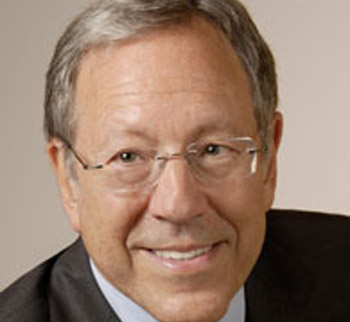MONTREAL — Mount Royal MP Irwin Cotler spoke out against the elimination of that federal riding during public hearings on the planned reorganization of the country’s electoral map.
He says Mount Royal should remain as it is.
Noting that 36 per cent of the population of Mount Royal is Jewish, Cotler said on Oct. 19 that the proposed changes “dramatically undermine the community of interest and identity,” one of the criteria that the law stipulates should be considered when drawing electoral district boundaries.
Mount Royal, which has been around since 1924, is slated to be significantly altered, losing much of its eastern territory in Côte des Neiges-Snowdon and being extended as far west as Dorval. The city of Côte St. Luc, which is now entirely within Mount Royal, would straddle two ridings.
The reconfigured riding is to be named for the late Montrealer John Peters Humphrey, who was the first director of the United Nations human rights division and the principal drafter of the Universal Declaration of Human Rights.
The Federal Electoral Boundaries Commission’s proposal to excise Mount Royal’s area east of Victoria Avenue, where Cotler’s constituency office is located, will have “the effect of dividing individuals and communities from their communal, recreational, faith and health-care institutions,” which are located on both sides of that street.
For the Jewish community, these include the Jewish General Hospital and the YM-YWHA and the rest of the Jewish community campus.
Pointing out that he has lived in the riding for more than 56 years, Cotler said the proposed changes will have “a significant – and prejudical – impact on the history, physical integrity, population, and community of interest and identity” of Mount Royal.
Cotler, a McGill University law professor for many years, said this is a breach of Section 15 of the Electoral Boundaries Readjustment Act.
Cotler described Mount Royal as a “rainbow riding” composed of many different ethnic communities that will also be divided by these changes.
He said the reorganization will have no effect on the total population – both Mount Royal and the proposed Humphrey ridings, have about 101,000 residents – but the latter will cover a larger geographical area.
Cotler criticized the fact that sections of St. Laurent, Villeray-Parc Extension and Dorval are to be “imported – without any rationale” into the new riding, and said the inclusion of St. Laurent’s industrial parks and Trudeau Airport alters the overwhelmingly residential character of Mount Royal.
“These territories have no contiguous territorial connection to Mount Royal – or, indeed, any historical connection to the riding – and will create divisions and disturbances in the existing municipalities and communities,” said Cotler, who has represented the riding since 1999.
The towns of Mount Royal and Hampstead would remain entirely within the new Humphrey riding.
Cotler added that he has the greatest respect for Humphrey (1905-1995), who was a colleague of his in McGill’s law faculty, but that admiration “does not nonetheless warrant the name change given the history of the Mount Royal riding, and the associations bound up with its name.”
The public hearings in Montreal on the electoral redistribution will continue Nov. 9, 12 and 14. Among the scheduled presenters is Côte St. Luc Mayor Anthony Housefather. That city’s council unanimously adopted a resolution opposing its division into two ridings, Humphrey and another proposed new riding, Wilder Penfield, which would also include parts of Notre-Dame-de-Grâce and Westmount.
Canada’s electoral map is revised every 10 years, after the census is conducted, to reflect population growth and shifts. Quebec is to receive three additional seats, bringing the total to 78.
The new electoral boundaries are expected to be in effect for the next federal election.
